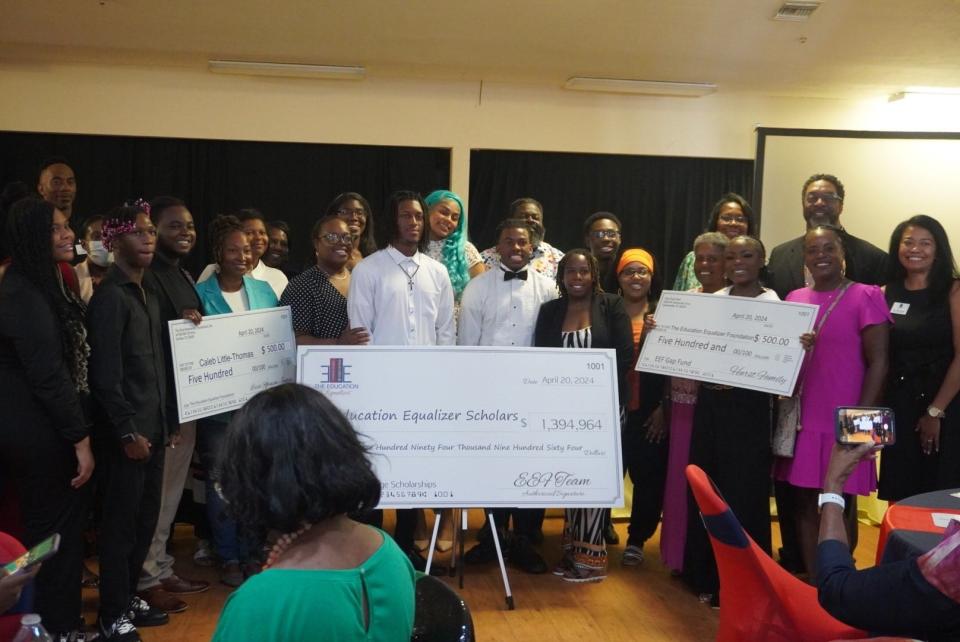For a second time since they filed their lawsuit more than 2½ years ago, plaintiffs in a case challenging an Oklahoma law against “critical race theory” have asked a federal judge to move along the proceedings.
The case concerns House Bill 1775, which bans the teaching of certain racial and gender topics in Oklahoma classrooms. Gov. Kevin Stitt signed the bill into law in May 2021 and the federal lawsuit followed that October. The challenge claims the law violates the First and Fourteenth amendments to the U.S. Constitution by stifling speech and discriminating against minority and LGBTQ+ students.
After the latest request by attorneys for the Black Emergency Response Team and other plaintiffs, made in a court filing on Friday, U.S. District Judge Charles Goodwin – who heard oral arguments in the case on Dec. 4 – immediately scheduled a status conference, to be held via telephone on June 7. In a three-paragraph order, also issued Friday, Goodwin told parties in the case to advise his courtroom deputy “of the telephone number at which they are to be contacted.”
The plaintiffs have asked Goodwin to discuss four items – their motion for a preliminary injunction blocking enforcement of the law, made Oct. 29, 2021; motions to dismiss made by two of the defendants, the University of Oklahoma and Edmond Public Schools, both made Nov. 23, 2021; and the defendants’ motion for judgment on the pleadings, made Jan. 25, 2023. In that motion, the defendants said, “This Court should decline Plaintiffs’ invitation to overturn Oklahoma’s democratic and representative political process. It should instead dismiss the case for failure to state a plausible claim.”
In the most recent motion, plaintiffs noted the length of time both sides have had to wait for any sort of decision from Goodwin.
“(T)hree of these motions have been pending for over two years, and another motion has been pending for over a year,” the request filed Friday said. “The Court held oral argument on the motions on December 4, 2024. To date, however, the Court has yet to issue a ruling or advise parties of the pending motion.”
The motion was signed by 11 attorneys representing the plaintiffs. Two of those, Adam Hines and Megan Lambert, are with the American Civil Liberties Union Foundation of Oklahoma, with the rest based in either New York or Washington, D.C. Oklahoma Attorney General Gentner Drummond’s office is defending the law.
Slow progression of the case also resulted in earlier questions from plaintiffs
Questions regarding the pace of the case now have been raised twice in less than a year by the plaintiffs. In a motion filed in late September last year, the groups suing the state noted the request for an injunction had been pending for nearly two years and all written arguments from both sides regarding the injunction had been filed 19 months ago.
In the September motion, they noted a request they’d made in August for a status conference had gone unanswered. They said they had two choices – to ask Goodwin to act or to appeal to the 10th U.S. Circuit Court of Appeals. Within days, Goodwin scheduled a telephonic status conference and on Dec. 1, he set a hearing for oral arguments three days later.
The December hearing lasted more than two hours, during which Goodwin floated the idea of referring the case to the Oklahoma Supreme Court but gave no indication as to when he might rule on the lawsuit.
The plaintiffs again floated the idea of appealing to the 10th U.S. Circuit Court of Appeals as part of a May 3 filing entitled “Plaintiffs’ Notice of Pending Motions.” In that filing, one subsection was entitled “Further Delay in Resolving Pending Motions Would Require Plaintiffs to Seek a Writ of Mandamus from the Tenth Circuit.”
Goodwin, who was nominated by former President Donald Trump, was confirmed in 2018 despite receiving a rare rating of “unqualified” from the American Bar Association’s judicial rating committee. A former chair of that ABA committee said Goodwin’s work habits as a federal magistrate, “including his frequent absence from the courthouse until mid-afternoon, raised doubt for a majority of the standing committee’s members with respect to Magistrate Judge Goodwin’s ability to fulfill the demands of a federal judge.”
Goodwin told the Senate Judiciary Committee in 2017, when he was a magistrate, that he often worked from home when he was writing opinions and that he was shocked and disappointed by the ABA’s rating.
This article originally appeared on Oklahoman: Oklahoma suit over critical race theory law pending after 2.5 years
Signup bonus from




